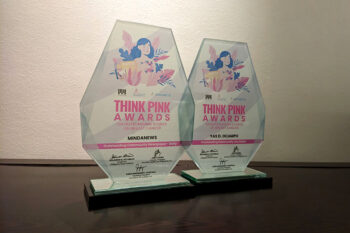DAVAO CITY (MindaNews / 17 July) – The National Commission for Muslim Filipinos (NCMF) is planning to explore the opportunities to open up Islamic microfinancing that will help more poor Filipinos.
NCMF secretary Yasmin Busran-Lao said the country still has no such financing mechanism and it will not take that much to put in place a microfinance institution
If this pushes through, Davao City is being considered as the launching pad.
“Maybe in Davao we can start Islamic microfinance. Let’s explore that and let’s see how we can adopt,” Lao said.
She said that an Islamic microfinance institution works on two models. First, a corporation can allow the poor to borrow money with no interest since it is being subsidized by its other income-generating arms.
Second, the company can amass enough funds for the borrowers through zakat, a charitable contribution.
“As Muslims, you check your income against your debts, and if you still have extra, you must give a certain percent for the poor,” Lao said.
“All employees give zakat to a certain organization, distributed to the poor as capital free of charge. We’ve been discussing that, because we don’t have that kind of mechanism since we’re not an Islamic country,” she added.
NCMF has been in the thick of discussion with Muslim entrepreneurs as to how they can start an Islamic microfinance in Davao.
“Maybe we can start with P1 million as startup capital in one area in Davao. A sidewalk vendor would need only how much to buy a pair of pants or to sell vegetables in the market? Let’s start small that way. Many Muslim businessman would be willing to do that and embrace the Islamic microfinance,” she said.
Lao said they are also pushing for changes in the legal framework of the banking industry to make it more accepting of Islamic banking, especially the charter of Amanah Islamic Bank.
“We revisited the Amanah Bank chapter and work together with the World Bank and some government agencies to make the charter of Amanah Bank at least fully Shariah-compliant,” she said.
Lao said the Philippines offers a big opportunity for Islamic banks.
She said Malaysian player Maybank, for instance, has 80 percent of its clients who are non-Muslims.
“They saw the system of banking which is more friendly to the clients. It’s not only for Muslims. It can be an alternative lucrative banking system for those who are looking for other models of banking,” Lao added.
She is hoping to get the support of the business sector on the matter.
“I hope that our business sector in the country will see that as an opportunity and support our call to transform Amanah Bank into a fully Islamic bank, at the same time, lobby with the legislators to make BSP and our banking framework more acceptable and open. As we are diverse in terms of people, our system should also be diverse,” she said.
